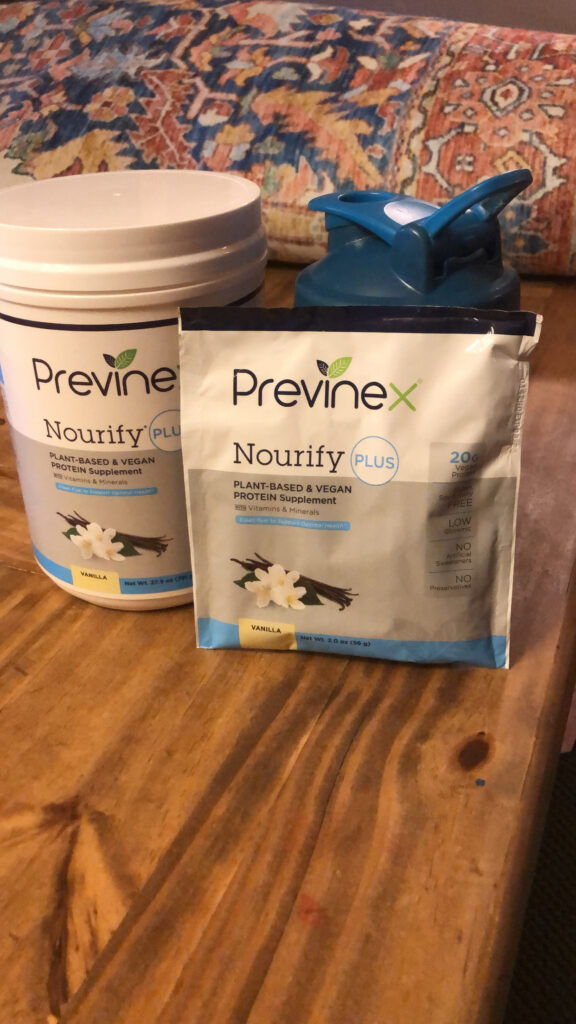Why protein intake is whey too important for endurance athletes to ignore.
Interested in adapting to training and seeing improvements quicker? What about recovering faster, or reducing time off training due to injuries and illnesses? Today we are going to talk about how and why meeting your protein needs will give you a performance advantage. For a long time endurance athletes have been lumped in with the general population when it comes to protein requirements, but as research has highlighted protein isn’t just for gym dwellers you might be looking for a little extra guidance.
What even is protein?
Protein is one of the three macronutrients found in our diet, alongside carbohydrates and fat. It is made up of amino acids, commonly referred to as the “building blocks” of protein, and acts as an important structural component in our bodies. There are many different types of protein, each with its specific role. Additionally, nine of the amino acids are termed “essential” because the body cannot make them itself: they must be obtained through our diet.
Why do we need protein?
Protein is a vital nutrient that serves numerous functions in our body including being responsible for building and repairing tissues and acting as an important building block for bones, muscles, cartilage, skin, and blood. Protein also plays a crucial role in the production of enzymes, hormones, and antibodies, which are essential for the proper functioning of all our body’s systems. As a “foodstuff”, protein is particularly satiating, keeping you feeling fuller longer than carbohydrates or fats.
Considerations for athletes: It’s more than bro science!
Once a topic limited to the world of strength training and bodybuilding, research has repeatedly demonstrated an increased need for protein among endurance athletes. This is due to the increased stress placed on our muscles and the need for muscle repair and growth. During training, our muscles experience micro-tears, and the consumption of protein after exercise helps repair and rebuild these damaged tissues. Additionally, endurance training (and more so for those who dabble in ultra-endurance) is particularly catabolic, meaning it increases the rate of protein breakdown in our bodies, especially if you are working out in a fasted or under-fueled state.
Adequate protein ensures muscles rebuild stronger and recover quicker, allowing you to perform better – a sign of training adaptation and progression. On the other hand, an inadequate protein intake tilts the breakdown-repair balance in favor of breakdown, resulting in delayed recovery, limited training progression, injuries, and illness.
While among the general, non-athletic population, protein deficiencies are rare, many athletes are sabotaging their health, performance, and recovery by not consuming enough of this vital macronutrient.
Signs you may not be getting enough protein:
- Delayed recovery from training
- Do you find yourself sore for longer than expected, or longer than friends, post training?
- Increased fatigue, muscle soreness, aches and pains
- Lack of performance improvements or training progression
- Have you found yourself on a performance plateau recently?
- Regularly getting sick or injured
- Are you always picking up little niggles, or struggling to shake a cough or cold?
- Low mood, motivation, and readiness to train
To counteract this, athletes need to consume sufficient protein to maintain a positive protein balance, promoting muscle protein synthesis and preventing muscle breakdown.

Understanding your protein needs
Dietary guidelines for the general, non-athletic population is 0.8 grams of protein per kilogram of body weight – or 0.36 grams per pound. For example, someone weighing 150 lbs should aim for at least 54 grams of protein per day. Athletes’ protein recommendations are far higher: 1.3 to 1.8g per kilogram, or 0.6 to 0.8g per pound; a 150 lbs athlete should aim for between 90-120g of protein per day.
Additionally, certain athletic populations may have even higher protein needs (1.8-2g/kg/day and upwards):
- Plant-based athletes
- Research suggests plant proteins are less bioavailable, meaning they are less easily absorbed, so more is needed to meet our bodies’ needs
- Those over 40 years old
- As we age, our body’s ability to absorb protein decreases, so again more is needed to meet needs and prevent muscle loss, or sarcopenia
- Athletes with a higher training status
- More protein should be consumed during periods of high frequency/intensity/volume training
- Those trying to lose weight
- Higher protein intakes may be advantageous in preventing lean mass losses while promoting fat loss during periods of energy restriction
Does when you consume protein matter?
Yes! Protein timing is an important consideration for endurance athletes, as it can impact muscle recovery, adaptation, and performance. It is beneficial to distribute protein intake throughout the day, aiming for at least 25-45 grams of protein 3-4 times per day, to ensure a steady supply of amino acids for muscle repair and growth. Recent research has debunked the long-held belief that “more than 45 grams of protein at once is wasted”, although it is not necessarily superior. So how should you think about protein timing?
Pre-Workout: Consuming protein before a workout provides your body with a readily available source of amino acids during exercise, helping to prevent muscle breakdown and enhance muscle repair. Opt for easily digestible protein sources such as a protein shake, Greek yogurt, or a small serving of lean meat. Given that protein may feel heavy in the stomach, pre-workout is the one time it’s okay to fall short of the 25-45 grams per serving protein recommendations: instead, aim for 15-20 grams, about half a normal serving.
Post-Workout: Immediately after exercise, your muscles are highly receptive to protein. While there is really no “magic recovery window” like once thought, consuming protein with carbohydrates within 30 minutes to an hour after workouts helps optimize muscle protein synthesis and replenish glycogen stores, kick-starting the recovery process.
Throughout the Day: Consistently meeting your protein requirements throughout the day, by consuming high-quality sources such as lean meats, fish, eggs, dairy, legumes, and plant-based protein sources, allows for sustained muscle recovery. Aim to include a source of protein in each meal and snack, especially at breakfast as our bodies are primed for muscle protein synthesis earlier in the day!
Before Bed: Consuming slow-digesting protein sources, such as casein protein or cottage cheese, before bed can help provide a prolonged release of amino acids throughout the night, aiding muscle repair and recovery while we sleep. Research also supports pre-sleep protein for improved sleep due to protein’s satiating effect, especially if you find yourself waking up hungry.
MYTH: “Eating before bed is linked to weight gain.”
- FALSE! In fact, research suggests a pre-sleep snack can positively enhance metabolic health and body composition!
Protein servings and sources: animals vs plants
30 grams is a good science-backed protein target to aim for per serving from either food or protein supplements, and is what the examples below are based off of.
Protein quality is determined based on both the quantity and variety of amino acids found in a source. Animal proteins are typically high-quality protein sources due to their numerous and diverse amino acid profile. They are also referred to as “complete proteins” because they contain all 9 essential amino acids our bodies need in one place, making them an efficient way to obtain the nutrients required.
Examples of 30 grams of animal protein:
- 1 cup cooked ground turkey/ beef
- 1 1/2 cups Greek yogurt
- 5 eggs
- 8 egg whites
- 1 1/4 cups cottage cheese
- 1 chicken/ turkey breast (4 oz)
- 4 oz of most meat (e.g. a large chicken breast, or a medium-sized steak or chop, or 1 hamburger patty)
- 5 oz of most fish filets or steaks
- 6 oz deli meat (approx. 6 slices of ham, turkey, or chicken)
- 5 oz cheese

Plant protein sources have long been thrown under the bus for containing a smaller quantity and less variety of amino acids. Historically they have been referred to as “incomplete proteins”, and to get around this and meet our protein needs from plants, we’ve been told that we need to consume larger servings, as well as eat a widely varied diet. This generally checks the boxes because different plant proteins have different amino acid profiles, so a diverse array of protein sources ensures we get in all the essential amino acids. That being said, while not all plant proteins contain high enough levels of all nine essential amino acids many do, including quinoa, buckwheat, spirulina, soybeans, nutritional yeast, chia seeds, pea protein, and hemp seeds.
Examples of 30 grams of plant protein:
- 1 cup edamame (cooked soybeans)
- 1 1/2 cups cooked tofu
- 1 2/3 cups cooked lentils
- 2 cups of most cooked beans (e.g. black beans, split peas, chickpeas)
- 1 cup peanuts or 1/2 cup (8 tbsp) peanut butter
- 6 oz Impossible meat (1 1/2 burger patties)
- 1/2 cup (8 tbsp) nutritional yeast
- 3 oz hemp seeds
- 4 oz seitan
MYTH: “You must combine different plant proteins at once in order to make a complete plant protein.”
- FALSE! While some plant proteins are considered incomplete, many plant proteins including pea protein, soybeans, spirulina, and hemp are all complete protein sources containing high enough amounts of all nine essential amino acids.
What about protein supplements?
Given athletes’ greater protein requirements, plus the tendency for exercise to suppress appetite, protein supplements, such as shakes and bars are an easy and convenient way for runners to meet their needs. There are many different types of protein supplements, both animal and plant-based, with varying pros and cons: some of which are outlined below. Each supplement varies in serving size, so have a look at the nutrition label to see what you need to consume to get that 30 grams of protein.
*A note of supplement caution. Supplements, including protein, are unregulated, which means you are not always buying what you think you are. One way to avoid wasting your money, and putting your health in jeopardy, is narrowing your search to only products that are 3rd party certified. Look out for labels and logos like NSF, Informed Sport, and Informed Choice – signs that the supplement has been independently tested for contaminants and contains exactly what it says on the label.

Animal protein supplements
| Whey | Whey isolate | Whey hydrolysate | Casein | |
| What? | Generally considered the gold standard in scientific research into the effects of protein on training adaptations, recovery, muscle protein synthesis and hypertrophy. | Whey protein is broken down to remove the fat and sugar. | One step further broken down than whey isolate. | Similar to whey in its composition and quality; casein digests slowly, whereas whey is much faster digesting. |
| Pros | Highest quality protein source. Incredibly diverse and complete amino acid profile. | Without lactose, the sugar found in milk (and whey), may be suitable for lactose intolerant individuals. Complete protein source. | Most tolerated by those with lactose intolerances. Complete protein source. | Slow digesting protein aids overnight muscle protein synthesis and satiety. High quality, complete protein. |
| Cons | Not suitable for vegans or those with lactose intolerances as it comes from cow’s milk. | Not suitable for vegans. Less absorbable as amino acids are already partially broken down. | Not suitable for vegans. Less absorbable as amino acids are already partially broken down. | Not suitable for vegans or those with lactose intolerances as it comes from cow’s milk. May feel heavier in the stomach as it’s slower to digest, so best taken before bed. |
Plant-based protein supplements
While plant-based protein from real food is less readily bioavailable compared to animal sources, because of its incomplete range of essential amino acids, the same is not true of plant-based protein supplements. In plant-based protein supplements, manufacturers combine multiple different plant proteins to make a complete protein. Additionally, they frequently add BCAAs and digestive enzymes to help break down plant proteins making them similarly bioavailable and easily absorbed by the gut as animal proteins. One advantage of plant proteins over animal ones is their suitability for vegans, as well as those with lactose intolerances and sensitive stomachs.
Examples of plant proteins:
- Soy
- Pea
- Pumpkin seed
- Rice
- Blue/ green algae
- Sunflower
- Spirulina
- Hemp
MYTH: “Soy protein has an estrogenic effect on men which promotes breast growth and impairs male fertility.”
- FALSE! While soy does naturally contain phytoestrogens, these are different compounds from the estrogen synthesized by the human body.
TL:DR
Protein is an essential nutrient for endurance athletes, playing a crucial role in muscle repair, growth, and overall performance. By ensuring adequate protein intake and timing throughout the day, you can support your body’s recovery, optimize performance, and maintain muscle health. Athletes can meet their higher nutritional needs from both animals and plants, and supplements can be an easy and convenient protein source (heck yeah trailhead protein shakes). Remember to consult a registered dietitian to determine your specific protein requirements and tailor your intake to your individual needs.
References
Hao, Y., Li, X., Zhu, Z., & Cao, Z. B. (2022). Pre-sleep protein supplementation affects energy metabolism and appetite in sedentary healthy adults. Frontiers in Nutrition, 9, 873236. https://doi.org/10.3389/fnut.2022.873236
Hilakivi-Clarke, L., Andrade, J. E., & Helferich, W. (2010). Is soy consumption good or bad for the breast?. The Journal of Nutrition, 140(12), 2326S–2334S. https://doi.org/10.3945/jn.110.124230
Jäger, R., Kerksick, C. M., Campbell, B. I., Cribb, P. J., Wells, S. D., Skwiat, T. M., Purpura, M., Ziegenfuss, T. N., Ferrando, A. A., Arent, S. M., Smith-Ryan, A. E., Stout, J. R., Arciero, P. J., Ormsbee, M. J., Taylor, L. W., Wilborn, C. D., Kalman, D. S., Kreider, R. B., Willoughby, D. S., Hoffman, J. R., … Antonio, J. (2017). International society of sports nutrition position stand: Protein and exercise. Journal of the International Society of Sports Nutrition, 14, 20. https://doi.org/10.1186/s12970-017-0177-8
Phillips, S. M., & Van Loon, L. J. (2011). Dietary protein for athletes: From requirements to optimum adaptation. Journal of Sports Sciences, 29 Suppl 1, S29–S38. https://doi.org/10.1080/02640414.2011.619204
Trommelen, J., van Lieshout, G. A. A., Nyakayiru, J., Holwerda, A. M., Smeets, J. S. J., Hendriks, F. K., van Kranenburg, J. M. X., Zorenc, A. H., Senden, J. M., Goessens, J. P. B., Gijsen, A. P., & van Loon, L. J. C. (2023). The anabolic response to protein ingestion during recovery from exercise has no upper limit in magnitude and duration in vivo in humans. Cell Reports. Medicine, 4(12), 101324. https://doi.org/10.1016/j.xcrm.2023.101324
